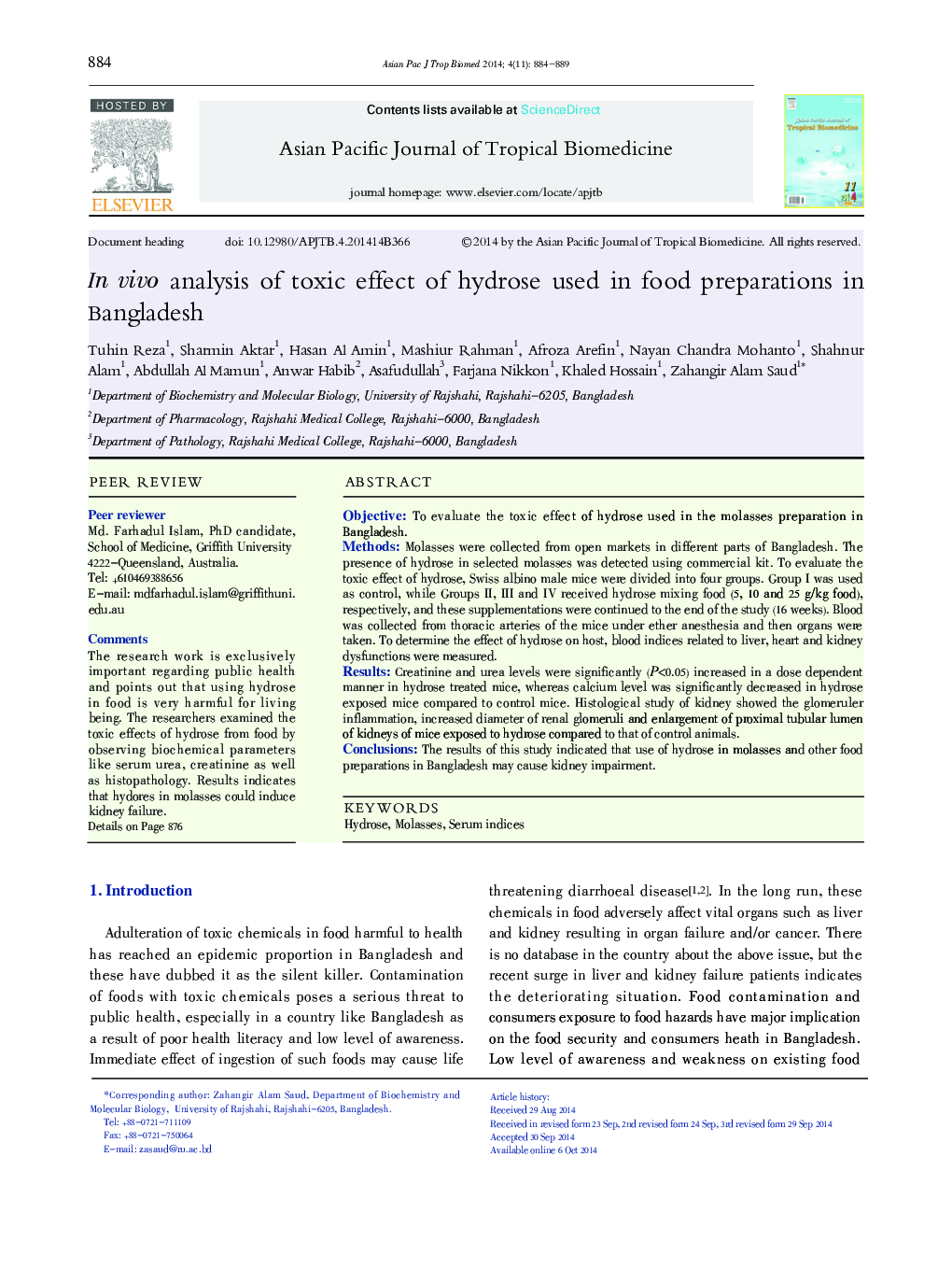| Article ID | Journal | Published Year | Pages | File Type |
|---|---|---|---|---|
| 2032686 | Asian Pacific Journal of Tropical Biomedicine | 2014 | 6 Pages |
ABSTRACTObjectiveTo evaluate the toxic effect of hydrose used in the molasses preparation in Bangladesh.MethodsMolasses were collected from open markets in different parts of Bangladesh. The presence of hydrose in selected molasses was detected using commercial kit. To evaluate the toxic effect of hydrose, Swiss albino male mice were divided into four groups. Group I was used as control, while Groups II, III and IV received hydrose mixing food (5, 10 and 25 g/kg food), respectively, and these supplementations were continued to the end of the study (16 weeks). Blood was collected from thoracic arteries of the mice under ether anesthesia and then organs were taken. To determine the effect of hydrose on host, blood indices related to liver, heart and kidney dysfunctions were measured.ResultsCreatinine and urea levels were significantly (P<0.05) increased in a dose dependent manner in hydrose treated mice, whereas calcium level was significantly decreased in hydrose exposed mice compared to control mice. Histological study of kidney showed the glomeruler inflammation, increased diameter of renal glomeruli and enlargement of proximal tubular lumen of kidneys of mice exposed to hydrose compared to that of control animals.ConclusionsThe results of this study indicated that use of hydrose in molasses and other food preparations in Bangladesh may cause kidney impairment.
